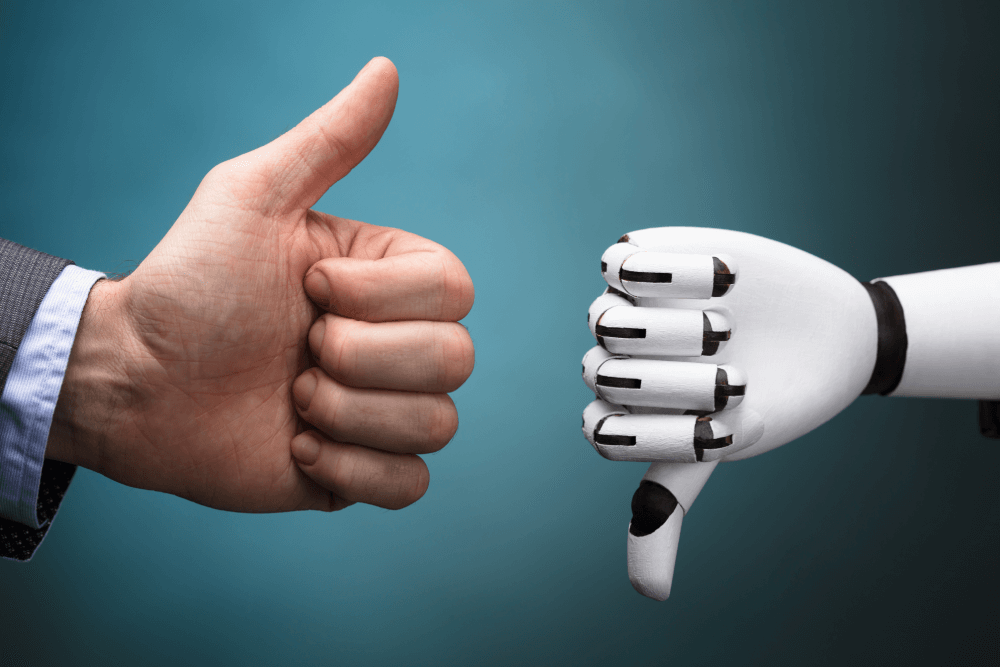Impact Of Artificial Intelligence brings to light the transformative effects of AI, exploring its diverse applications and ethical implications in today’s society. From revolutionizing industries to raising concerns about job displacement, this topic delves into the intricate world of artificial intelligence.
Artificial Intelligence (AI) refers to the simulation of human intelligence processes by machines, specifically computer systems. These processes include learning, reasoning, problem-solving, perception, and language understanding. AI is a rapidly evolving field that has the potential to revolutionize various industries and aspects of society.
- Narrow AI: Also known as Weak AI, this type of AI is designed for a specific task, such as playing chess or answering customer service queries.
- General AI: Also known as Strong AI, this type of AI is capable of performing any intellectual task that a human can do.
- Superintelligent AI: This hypothetical AI would surpass human intelligence in every way and could potentially outperform humans in all cognitive tasks.
Evolution
Artificial Intelligence has a long history dating back to the 1950s when the term was first coined. Over the decades, AI has made significant advancements in various areas, including:
- Machine Learning: Algorithms that enable machines to learn from data and improve their performance over time.
- Natural Language Processing: The ability of machines to understand and generate human language.
- Computer Vision: AI systems that can interpret visual information from the environment.
- Robotics: The integration of AI with robots to perform tasks autonomously.

Applications
Artificial Intelligence (AI) is revolutionizing various industries by providing advanced capabilities for automation, decision-making, and problem-solving. Let’s explore how AI is applied in different sectors and its impact on the workforce and efficiency.
Healthcare Industry
In healthcare, AI is used for medical imaging analysis, personalized treatment plans, drug discovery, and patient data management. Machine learning algorithms can analyze large datasets to identify patterns and predict outcomes, leading to more accurate diagnoses and treatment decisions.
Finance Sector
AI plays a crucial role in the finance industry through fraud detection, algorithmic trading, customer service chatbots, and risk management. By analyzing financial data in real-time, AI systems can detect anomalies, predict market trends, and automate routine tasks, improving operational efficiency and reducing risks.
Transportation and Logistics
In transportation, AI technologies are utilized for route optimization, autonomous vehicles, predictive maintenance, and demand forecasting. Self-driving cars rely on AI algorithms to navigate traffic, while logistics companies use AI to streamline delivery routes, reduce fuel consumption, and enhance overall efficiency in supply chain management.
Impact on Job Automation and Workforce
The widespread adoption of AI has raised concerns about job displacement and the future of work. While AI can automate repetitive tasks and improve productivity, it also poses a threat to jobs that are routine and predictable. However, AI also creates new job opportunities in AI development, data science, and AI ethics, requiring a skilled workforce to harness the full potential of AI technologies.
Role in Improving Efficiency and Decision-Making
AI systems enable organizations to make data-driven decisions, optimize processes, and enhance customer experiences. By analyzing vast amounts of data, AI algorithms can identify trends, recommend actions, and adapt to changing environments in real-time. This leads to faster decision-making, reduced errors, and improved overall efficiency across industries.
Ethical Considerations
Artificial Intelligence (AI) presents a myriad of ethical considerations that need to be carefully examined and addressed. From bias in algorithms to data privacy concerns, the ethical implications of AI technologies are vast and complex.
Bias in Algorithms
Bias in algorithms is a significant ethical dilemma in AI, as these algorithms can perpetuate and even amplify existing biases present in the data they are trained on. For example, if a facial recognition algorithm is trained primarily on data of one racial group, it may struggle to accurately identify individuals from other racial groups, leading to discriminatory outcomes. It is crucial for developers to ensure that AI systems are trained on diverse and unbiased datasets to mitigate this issue.
Data Privacy Concerns
The collection and use of vast amounts of data by AI systems raise serious concerns about data privacy. With AI being able to analyze and predict human behavior based on this data, there is a risk of sensitive information being misused or exploited. It is essential for stringent data protection regulations to be in place to safeguard individuals’ privacy rights and prevent unauthorized access to personal data.
Responsibility and Accountability
Determining the responsibility and accountability of creators and users of AI systems is another ethical consideration. If an AI system makes a harmful decision, who should be held accountable? Should it be the developers who created the system, the organization deploying the system, or the end-users who interact with it? Clarifying these roles and responsibilities is crucial to ensure transparency and accountability in the use of AI technologies.
Implications on Societal Values and Norms
The widespread adoption of AI technologies also has implications on societal values and norms. For example, the use of AI in decision-making processes, such as hiring or lending decisions, may raise questions about fairness and equality. It is essential to consider how AI impacts societal values such as fairness, transparency, and accountability, and to ensure that these technologies are developed and deployed in a way that upholds ethical standards and promotes the common good.
Benefits and Challenges
Artificial Intelligence (AI) offers a myriad of benefits in enhancing productivity and innovation across various industries. However, along with these advantages, there are also significant challenges associated with the implementation of AI systems.
AI has the potential to revolutionize processes and tasks, leading to increased productivity and efficiency. Some key benefits include:
- Automation of repetitive tasks: AI can automate mundane and repetitive tasks, allowing employees to focus on more complex and strategic activities.
- Data analysis and decision-making: AI can analyze massive amounts of data quickly and accurately, helping organizations make informed decisions based on insights derived from the data.
- Improved customer experience: AI-powered chatbots and virtual assistants can enhance customer service by providing real-time assistance and personalized interactions.
- Predictive maintenance: AI can predict equipment failures before they occur, enabling proactive maintenance and reducing downtime.
While AI offers numerous benefits, there are challenges that organizations must address when implementing AI systems. Some of the key challenges include:
- Cybersecurity threats: AI systems can be vulnerable to cyberattacks, leading to data breaches and privacy concerns.
- Legal and ethical issues: The use of AI raises questions about accountability, transparency, and bias, requiring clear regulations and guidelines to address these concerns.
- Integration and scalability: Implementing AI systems into existing infrastructure can be complex and costly, requiring careful planning and resources.
It is essential to recognize the potential risks of overreliance on AI technology, such as:
- Job displacement: The automation of tasks through AI can lead to job displacement and changes in the workforce, requiring reskilling and upskilling initiatives.
- Algorithmic bias: AI systems can perpetuate biases present in the data used to train them, leading to discriminatory outcomes in decision-making processes.
- Regulation and governance: The rapid advancement of AI technology necessitates robust regulations and governance frameworks to ensure ethical and responsible use of AI.
In conclusion, Impact Of Artificial Intelligence underscores the need for a balanced approach towards AI adoption, weighing its benefits against the potential risks.












